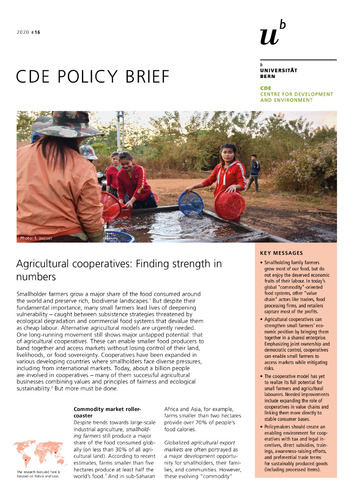Agricultural cooperatives: Finding strength in numbers
Smallholder farmers grow a major share of the food consumed around
the world and preserve rich, biodiverse landscapes.1
But despite their
fundamental importance, many small farmers lead lives of deepening
vulnerability – caught between subsistence strategies threatened by
ecological degradation and commercial food systems that devalue them
as cheap labour. Alternative agricultural models are urgently needed.
One long-running movement still shows major untapped potential: that
of agricultural cooperatives. These can enable smaller food producers to
band together and access markets without losing control of their land,
livelihoods, or food sovereignty. Cooperatives have been expanded in
various developing countries where smallholders face diverse pressures,
including from international markets. Today, about a billion people
are involved in cooperatives – many of them successful agricultural
businesses combining values and principles of fairness and ecological
sustainability.2
But more must be done.

